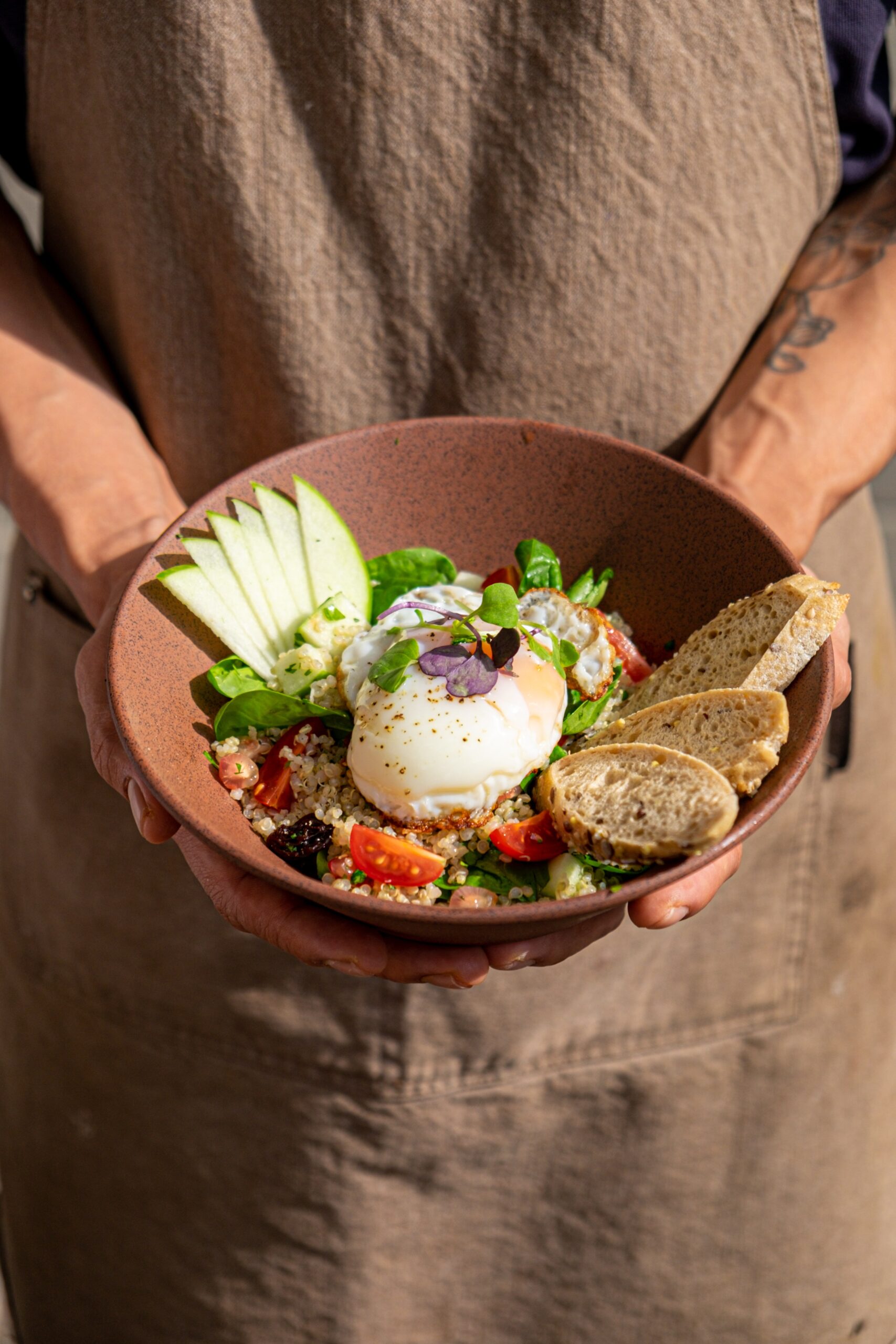
Dietary & Lifestyle Support for PMS
Welcome to part 2 of Supporting your PMS symptoms! Part 1 can be found here and I recommend reading that blog first so you understand the drivers of the many different types of PMS and associated symptoms.
Let’s now look at what you can do right now to support PMS.
Dietary support:
Adopt as many of the following principles as you can to support healthy hormone production and clearance.
- Eat your fibre – at least 25 – 30g daily for women. An example of a high fibre diet looks like:
- ½ cup cooked steel cut oats = 5g
- 1 cup of cooked cauliflower = 4.9g
- ¼ cup raw almonds = 3g
- 1 large carrot = 2g o ½ cup cooked chickpeas = 7g
- 1 cup of raspberries = 8g
- 1 gold kiwi fruit = 2g Total = 31.9g
- Follow 5:2 – 5 serves of veg and 2 serves of fresh fruit daily (not the intermittent fasting plan)!
This is simple advice but I hardly see anyone eating 5 serves of veggies daily.- 1 serve of veg equals:
- ½ cup of cooked vegetables eg broccoli, spinach, carrots, pumpkin
- 1 cup of raw leafy salad greens
- ½ cup starchy vegetables eg sweet potato, beetroot, potato
- 1 medium sized tomato
- ½ cup of cooked corn
- ½ cup of cooked legumes
- 1 serve of fruit looks like:
- 1 medium apple, banana, orange, pear
- 2 small fruits eg apricots, stone fruit, kiwi fruit
- 1 cup of berries
- 1 serve of veg equals:
- Enjoy an abundance of magnesium rich foods:
- Leafy greens
- Wholegrains – particularly oats and barley
- Legumes – navy, pinto, kidney and chickpeas
- Nuts and seeds – peanut butter, sunflower seeds
- Seafood
- Meat
- Dairy products
- Ensure you eat your beautiful brassicas – mostly cooked:
- Broccoli
- Cauliflower
- Cabbage
- Kale/cavolo nero
- Brussels sprouts
- Rocket
- Mustard spinach
- Kohl rabi
- Bok choy
- Turnip
- Include omega-3 foods regularly:
- Fatty SMASH fish (salmon, mackerel, anchovies, sardines, herring) x 3 times weekly – wild caught seafood is fabulous if you have access to it
- Supplement with fish oil
- Vegan omega-3 options include chia seeds, flaxseed meal and oil, walnuts, and algae oil
- Be mindful that sugar, caffeine, alcohol, deep fried foods, and cows dairy may have an impact on your PMS symptoms. Not all of these foods will affect everyone’s skin, so please don’t cut everything out! Trial and reintroductions with a practitioner is a good barometer.
- Lifestyle support:
- Exercising has a clear PMS symptom reducing effect. Studies show that regular exercise is effective in improving physical PMS symptoms including pain, bloating, breast pain, anxiety, and mood swings, amongst many other I hear from my clients regularly
- Stress management and reduction in some way most days. See this blog for support
- Utilise heat therapy for pain. A hot water bottle, heating essential oils/blends (such as Peppermint or a heating balm such as Tiger balm), and tens machines are great options to have on hand
- Talk therapy is extremely beneficial to assist with mood symptoms
- Pain killers – know what works for you and have them on hand. There is little use being in extreme pain every month. Please, take the pain killers if you need them whilst you work on addressing the root cause of your period pain
- Acupuncture is fantastic for managing and reducing PMS symptoms, including pain
For nutritional and herbal supplementation treatment options to assist your PMS, please read part 1 of this blog series here.
Ask me your questions below, and feel free to reach out if you are looking for one-on-one support with your PMS or other hormonal condition.
You can book in a Base Chat or Initial Session with me here.
Jaclyn is a qualified Naturopath with a focus on hormonal complaints, reproductive and fertility care, skin, and adrenal health.
Author
Jaclyn CaveBHSc (Nat), BComm (Soc)
Learn more about Jaclyn here.
Book a session with Jaclyn here.
References:
https://pubmed.ncbi.nlm.nih.gov/31928364/
https://www.ncbi.nlm.nih.gov/pmc/articles/PMC3208934/
https://pubmed.ncbi.nlm.nih.gov/11129515/
https://www.ncbi.nlm.nih.gov/pmc/articles/PMC7527439/
https://www.sciencedirect.com/science/article/pii/S1028455909602710
https://pubmed.ncbi.nlm.nih.gov/23642943/
https://www.ncbi.nlm.nih.gov/pmc/articles/PMC3033240/
https://www.ncbi.nlm.nih.gov/pmc/articles/PMC4540034/
https://www.eatforhealth.gov.au/food-essentials/how-much-do-we-need-each-day/serve-sizes
https://pubmed.ncbi.nlm.nih.gov/31987230/





